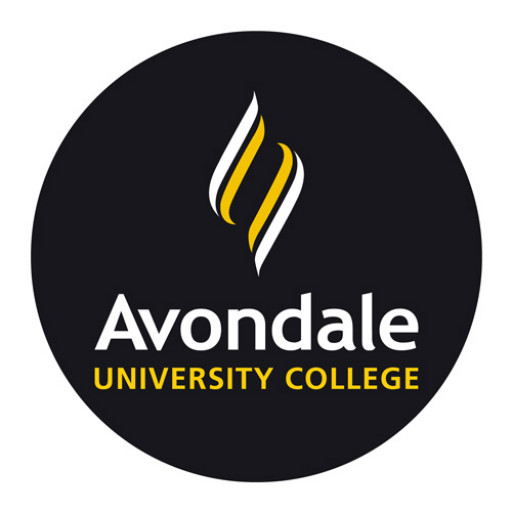Program Title: Master of Divinity in Systematic Theology
The Master of Divinity in Systematic Theology at the University of Divinity provides students with a comprehensive and in-depth understanding of Christian doctrinal teachings, exploring the core beliefs, doctrines, and theological frameworks that have shaped Christian thought throughout history and continue to influence contemporary faith and practice. This program is designed for those preparing for ministry, clergy, religious educators, and individuals seeking a scholarly understanding of Christian theology from a systematic perspective.
Throughout the coursework, students engage with a wide range of subjects including the nature of God, Christology, Pneumatology, soteriology, ecclesiology, and eschatology. They examine how these doctrines are articulated across different traditions and how they relate to issues of faith, ethics, and societal engagement. The program emphasizes critical thinking, theological reflection, and an integration of biblical studies with doctrinal development, equipping graduates to communicate complex theological ideas effectively within church contexts and academic settings.
The curriculum combines both historical and contemporary theological perspectives, encouraging students to assess and interpret doctrinal developments in relation to current cultural and socio-political issues. Students participate in lectures, seminars, research projects, and personal supervision, fostering a lively academic community dedicated to theological inquiry and spiritual formation.
The Master of Divinity in Systematic Theology aims to prepare graduates for a variety of professional roles, including pastoral ministry, theological education, chaplaincy, and Christian leadership. Graduates are equipped not only with theological knowledge but also with skills in preaching, counseling, ethical decision-making, and community engagement. The program combines rigorous academic training with opportunities for practical application, ensuring that students are well-prepared to serve and lead within diverse community settings.
Upon successful completion of the program, students earn a recognized qualification that qualifies them for ordination, further academic study, or leadership positions within religious organizations. Emphasizing both faith and intellectual rigor, this program fosters a deep commitment to understanding and articulating the Christian faith in a way that is relevant, transformative, and rooted in biblical truth. It represents a vital step for those aspiring to deepen their theological knowledge and enhance their capacity to serve in faith-based vocations.
The Master of Theological Studies in Systematic Theology at the University of Divinity offers students an in-depth exploration of the doctrines, theological frameworks, and intellectual traditions that have shaped Christian thought across history. This comprehensive program is designed for those seeking to deepen their understanding of core theological concepts, engage critically with contemporary debates, and develop the skills necessary for academic, pastoral, or research ministry. Throughout the course, students will examine the nature of God, Christology, soteriology, eschatology, and the role of the Holy Spirit from multiple theological perspectives. The curriculum encompasses a diverse array of modules including historical developments in systematic theology, biblical foundations, ethics, and contemporary issues affecting theology today.
Students will have opportunities to study under renowned faculty members, participate in stimulating seminars and workshops, and engage with primary theological texts and modern scholarship. The program emphasizes critical thinking, scholarly research, and doctrinal analysis, equipping graduates with the capacity to interpret and communicate complex theological ideas effectively. In addition to coursework, students are encouraged to undertake research projects that address current theological challenges or contribute to academic discourse. The program can serve as a pathway for those aiming for doctoral studies or pastoral leadership roles, providing a solid foundation in systematic theology. As a vibrant academic community rooted in the Anglican tradition, the University of Divinity fosters an environment of spiritual growth, academic excellence, and service. Graduates of the Master of Theological Studies in Systematic Theology will be well-prepared to contribute thoughtfully to church, academia, and society through learned engagement with Christian doctrines and contemporary issues.
Program requirements for the Master of Divinity in Systematic Theology at the University of Divinity typically include the completion of core coursework in biblical studies, historical theology, and practical ministry. Students are expected to engage in comprehensive study of Christian doctrines, ethics, and theology proper, often including modules on biblical exegesis, doctrinal development, and contemporary theological issues. A specified number of credit points must be earned through lectures, seminars, and examinations, with students required to participate in supervised theological research. Practical components such as ministry placements or reflective practicums are integral to the program, enhancing contextual theological understanding. Candidates must submit a research thesis or major paper demonstrating critical engagement with theological scholarship on topics within systematic theology. The program may also stipulate prerequisites, such as prior undergraduate studies in theology or related disciplines, and language competencies in biblical or theological languages like Greek or Latin. Continuous assessment through essays, presentations, class participation, and exams ensures ongoing progress. Successful completion of all coursework, practical requirements, and research components leads to the conferral of the Master of Divinity degree. The university emphasizes a curriculum aligned with ecumenical and pluralistic perspectives, encouraging students to develop disciplined, scholarly, and pastoral competencies suitable for ordained ministry or advanced theological research.
The University of Divinity offers various funding options for students enrolled in its programs, including the Master of Theological Studies in Systematic Theology. Students can explore a range of scholarships, bursaries, and grants designed to support theological education and reduce financial barriers. Scholarships are often awarded based on academic merit, financial need, or specific criteria such as denominational affiliation or leadership potential. Applicants are encouraged to submit their applications early and provide all required documentation to be considered for these financial awards. Additionally, the university participates in federal and state government loan schemes where eligible students can access student loans to partly cover tuition fees and living expenses. The university also offers payment plans that allow students to pay their tuition in installments over the course of their studies, making it easier to manage finances without a large upfront payment. International students, in particular, are advised to seek information about specific scholarships and financial aid programs available to them, which can vary based on nationality and study visa status. Furthermore, some students may qualify for financial aid through their sponsoring organizations or religious communities, which often have dedicated funds to support theological students pursuing degrees at the university. It is recommended that students consult the university’s official website or contact the financial aid office directly for the most current and detailed information regarding financing options. The university’s goal is to make theological education accessible, and therefore, it continually updates and expands its financial support programs to assist students in completing their studies without undue financial hardship.
The Master of Theology program in Systematic Theology at the University of Divinity offers advanced theological education for students seeking to deepen their understanding of Christian doctrines and how they are integrated into faith and practice. This program is designed for those who aim to enhance their scholarly capabilities, refine their interpretative skills, and explore contemporary issues through the lens of systematic theology. The curriculum typically covers core areas such as the nature of God, Christology, Pneumatology, ecclesiology, soteriology, and eschatology, providing a comprehensive framework for understanding Christian beliefs systematically. The program may also include specialized topics, research methodologies, and critical analysis, encouraging students to engage with both historical and contemporary theological debates.
Students are often expected to undertake independent research, participate in seminars, and contribute to academic discussions under the supervision of experienced faculty members. The program emphasizes scholarly rigor, theological reflection, and practical application, preparing graduates for careers in ministry, academia, or theological research. The University of Divinity, known for its theological excellence and commitment to faith-based learning, ensures that the program is delivered by qualified academics with extensive experience in systematic theology.
While the course structure might vary, it generally allows for flexible modes of study, including full-time, part-time, and online options, to accommodate students' diverse needs. The program's outcomes include developing critical thinking, theological articulation, and a deeper appreciation of Christian doctrine's role within religious communities and wider society. Graduates of this program are equipped to contribute thoughtfully and knowledgeably to theological discourse, ecclesial leadership, or further academic pursuits such as doctoral studies. This postgraduate qualification signifies a significant step in a theological or pastoral career, fostering both intellectual growth and spiritual development in alignment with the mission of the University of Divinity.










